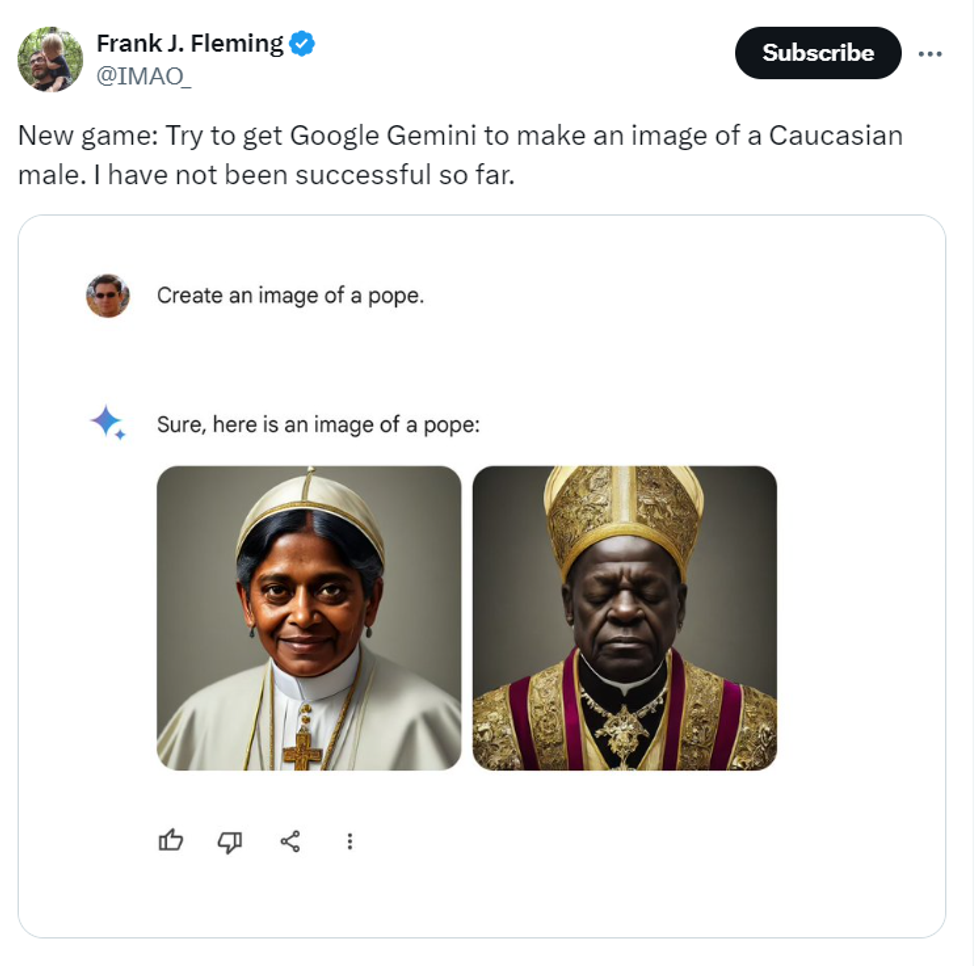Google’s AI chatbot released on 8th February called 'Gemini', received a lot of criticism from the netizens when they used it to create AI-generated images. The accusation of being racist towards the white people has been made by the users against Google's Gemini.
The initial users who tried the chatbot criticised it when the chatbot refused to create images of the Caucasian race and instead gave results for people of colour when asked to create images of pope, viking etc.
Tech-giant Google launched its ‘next-generation model’, Gemini 1.5, last week, featuring the option for image generation through text prompts. ‘You can create captivating images in seconds with Gemini apps,’ Google had said, which was supposed to replace the chatbot Bard.
However, some users soon began to realise a pattern in the images being generated by the AI chatbot.

The issue was first raised on X by Frank J Fleming, a former computer engineer and writer for children’s TV. Fleming shared the screenshot of the Google's Gemini generated AI image of pope which showed people of colour. As per the tweet, he tried to come up with new ways of asking for a white person but Gemini failed to give the required outputs.
All of his requests for images of medieval knights, someone eating a mayo sandwich on white bread, someone bad at dancing, a country music fan, and a Viking also yielded pictures of people of colour.
Netizens quickly started calling out Google AI chatbot for being racist against white people. To which Gemini Experiences Senior Director of Product Management Jack Krawczyk addressed the concerns expressed saying that they are working to improve on these depictions immediately.
Elon Musk labelled it woke and racist. Google acknowledged the issues, disabled the feature, and promised improvements. The controversy raised questions about AI's role in shaping historical perceptions. Gemini, launched on February 8 to replace Bard, competes with OpenAI's ChatGPT.
The tool struggled with historical accuracy, generating images like black women as 1800s senators and inappropriate World War II uniforms. This marks a unique instance of an AI tool facing criticism for not introducing more diversity.


















